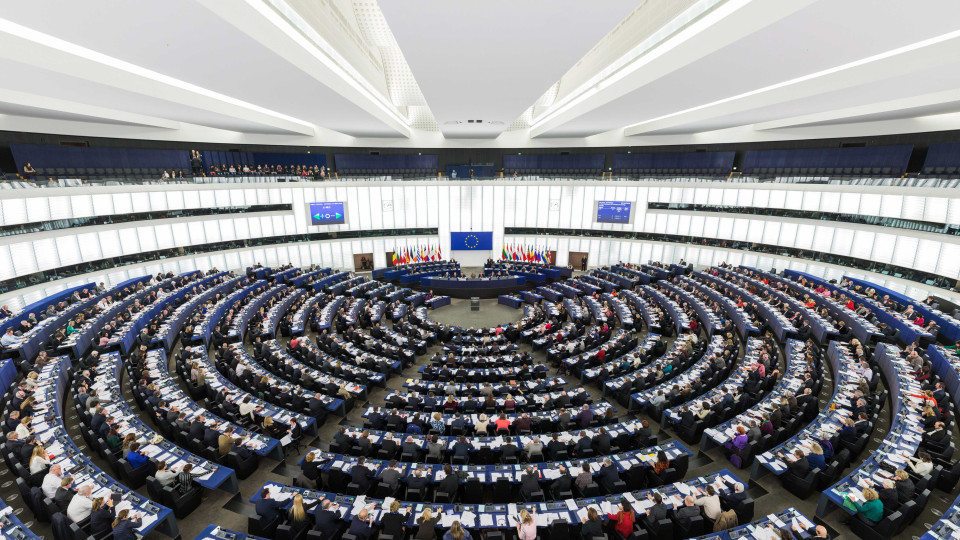Elections. European Parliament braces for more far-right but fragmented
European affairs analysts admit that the upcoming elections will result in the largest far-right representation ever in Strasbourg, but they stress that these parties are deeply divided, especially over Russia.

© Wikimedia Commons

Política Europeias
However, "there are many things that divide them," Csaky argued, "from foreign policy to some aspects of migration."
Sophia Russack, researcher at the Centre for European Policy Studies, agrees and even points out that the far right "is far from being united."
"They are very fragmented [...], just this week [Marine] Le Pen wanted to kick AfD [Alternative for Germany] out of [the group] Identity and Democracy [ID] and ID kicked AfD out only because Le Pen wanted them out. This is a good example of this fragmentation," she told Lusa.
In the researcher's opinion, the far right "is incapable of forming axes."
However, there are issues that favour unity among far-right parties, Sophia Russack argued, for example the "idea that the EU is just bureaucracy" and the tendency to use the EU as a "scapegoat."
The elections for the European Parliament (EP) will take place between 6 and 9 June in the 27 countries that make up the European Union, including Portugal.
There is one topic that almost all of the far right resorts to and that is possibly the only point of absolute convergence: these parties believe that immigration is a problem that the EU is incapable of solving and that "illegal immigration" is out of control, despite there being no evidence to support these claims.
"Within the ECR [group of European Conservatives and Reformists, parallel to ID] there is unity in the way they see immigration, they want to limit it as much as possible and 'protect their nationalities'," the researcher explained, "but what divides them is, for example, the [position on] Russia and Ukraine."
"[Far-right parties] are generally united by Euroscepticism and anti-migration claims, but they are very divided on support for Ukraine and whether or not Russia is friendly," Russack reinforced.
The disparity in opinions is evident, for example, with Chega, the Portuguese far-right party that aims to achieve representation in the EP's hemicycle over the next five years.
The party does not use anti-European rhetoric and the president, André Ventura, has verbalised on more than one occasion his opposition to Russia, but Chega has positioned itself to belong, if it manages to elect MEPs, to ID, the most right-wing group in the European political spectrum and which brings together more Eurosceptic political forces and supporters of the Kremlin.
As for the predictability of growth in the far right in the June elections, Zselyke Csaky is more assertive, but leaves a warning: "A peak in next month's European elections is indeed predictable, but that does not mean that the votes will easily translate into a larger [far-right] representation in the European Parliament."
Even if the far-right parties perform well, it is likely that they will have "a long way to go to become the third largest party in the EP - whether as ID, ECR, or as founders of a new group," he added.
The disagreement between Marine Le Pen's Rassemblement National and the AfD demonstrates that "there is a lot of politicking and shape-shifting that ends up making it difficult to maintain the current party structure."
Sophia Russack emphasises that, although most polls in the 27 countries point to a growth in the representation of the radical right, "a lot can change until election day."
Read Also: European. Party in Government won 4 of the 8 elections held here (Portuguese version)

Descarregue a nossa App gratuita.
Oitavo ano consecutivo Escolha do Consumidor para Imprensa Online e eleito o produto do ano 2024.
* Estudo da e Netsonda, nov. e dez. 2023 produtodoano- pt.com



